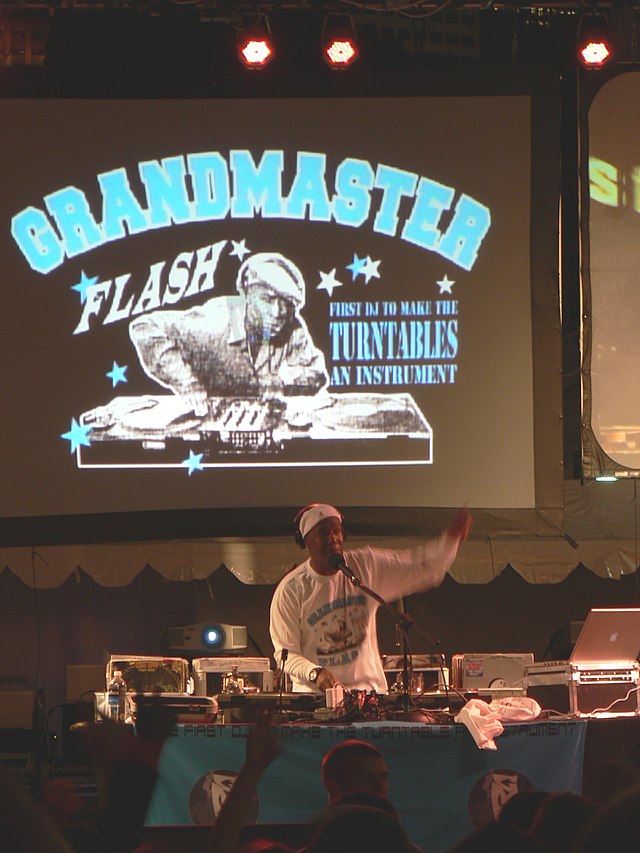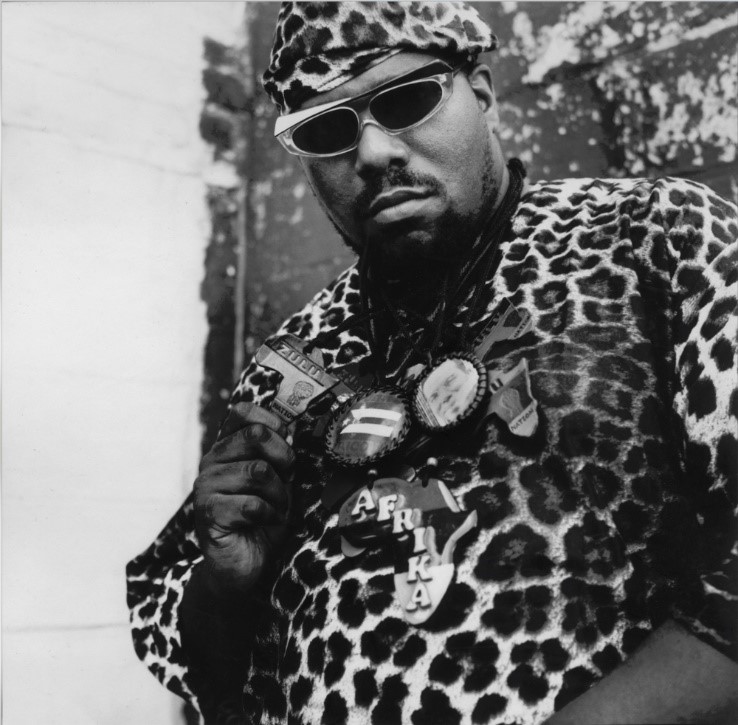
Mainstream Attention 1
Many DJs had "crews" or personnel consisting of DJs/MCs and sometimes dancers. For example, DJ Kool Herc's crew was known as The Herculords. Among its crew members were MCs Clark Kent, Jay Cee, and the first lady of the crew, Pebblee-Poo. Afrika Bambaataa's (who will be discussed shortly) crew, Soulsonic Force, consisted of MCs Cowboy (not Cowboy of the Furious Five), Mr. Biggs, and Queen Kenya. Other crews included the Cheeba Crew, Fantastic 5 MCs, the Mercedes Ladies, and the Malachi Crew. However, Grandmaster Flash's MCs, dubbed Grandmaster Flash and the Furious Five, revolutionized rhyming to the rhythm of the beat by trading off rhyming couplets (similar to trading fours among jazz musicians). Their style of rapping to the beat is the model for crews with two or more MCs. The group's 1982 recording " The Message" is by far their signature song.
Afrika Bambaataa (born Bambaataa Kahim Aasim on April 17, 1957) is the most enigmatic of these three founding fathers of the culture. His most significant artistic contribution to the development of the culture was his aesthetic commitment to exploring rare sounds and interpolating them into the creative fabric of hip-hop music. Bambaataa was born in America, but his parents were from Jamaica and Barbados. Bambaataa is one of the originators of breakbeat DJing. Through his co-opting of the street gang the Black Spades into the music and culture-oriented Universal Zulu Nation, he has helped spread hip-hop culture throughout the world.
Bambaataa, a member of the notorious Black Spades gang in the Bronx, opted to occupy himself with DJing rather than violence by performing at neighborhood clubs and block parties. Known as the "Master of Records" because of his uncanny way of finding beats from various musical genres, he also envisioned hip-hop as a deterrent to gang violence by starting a nonviolent organization called the Youth Organization at his place of residence, the Bronx River Projects, in 1973. He eventually renamed it the Zulu Nation. The Zulu Nation consisted primarily of Black and Latino youths and offered them the prospect of competing creatively against each other rather than through violent means. As Bambaataa recalled, 'people were into breakdancing, DJing, rapping, and graffiti. They would battle against each other in a nonviolent way, like rapper against rapper rather than knife against knife' (quoted in Keyes 2002, 48).







